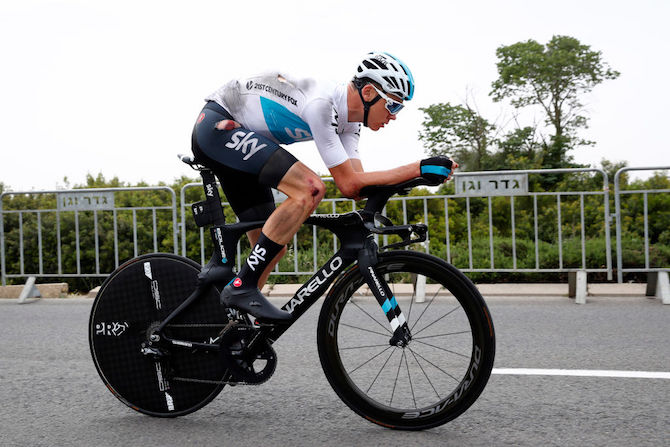WADA will not appeal UCI verdict on Chris Froome salbutamol case
Anti-doping agency decides controlled study 'not practicable'



The World Anti-Doping Agency announced on Monday that it will not appeal the UCI's decision to clear Chris Froome of any anti-doping rule violations from the 2017 Vuelta a Espana. The agency's press release confirmed that Froome did not undergo the controlled pharmacokinetic study (CPKS) allowed under WADA rules to prove that the level of salbutamol in his Vuelta urine sample that exceeded the allowed threshold was a normal consequence of his physiology.
"In Mr. Froome's case, WADA accepts that a CPKS would not have been practicable as it would not have been possible to adequately recreate the unique circumstances that preceded the 7 September doping control," the press release stated.
WADA arrived at the decision "based on a number of factors that are specific to the case of Mr. Froome – including, in particular, a significant increase in dose, over a short period prior to the doping control, in connection with a documented illness; as well as, demonstrated within-subject variability in the excretion of Salbutamol – WADA concluded that the sample result was not inconsistent with the ingestion of inhaled Salbutamol within the permitted maximum dose."
The WADA code allows for asthmatic athletes to inhale salbutamol at maximum doses of 1600 mcg/24 hours, while not exceeding 800 mcg per 12 hours.
In previous salbutamol cases – in particular those of Alessandro Petacchi and Diego Ulissi – the UCI and WADA rejected arguments that the athlete's use of the drug was within the allowed limits.
In 2014, Ulissi underwent a CPKS, but his appeal on a salbutamol level of 1900mg/mL failed, and he was given a nine-month ban. In 2008, the Court for Arbitration of Sport declared that Petacchi "simply, and, possibly, accidentally, taking too much Salbutamol on the day of the test, but that the overdose was not taken with the intention of enhancing his performance", but he was still given a one-year ban for testing at 1352ng/mL.
Since those cases, a 2016 scientific study showed that some subjects who inhaled the maximum dose all at once exceeded the 'decision limit' of 1200ng/mL salbutamol levels in urine that would trigger an adverse analytical finding, but if the samples were standardized for concentration (specific gravity), there were fewer samples that exceeded the limit.
Get The Leadout Newsletter
The latest race content, interviews, features, reviews and expert buying guides, direct to your inbox!
Froome's anti-doping control after stage 18 of the Vuelta was reported to contain double the allowed level of salbutamol (2000ng/mL), although there has been no confirmation of whether that value was adjusted to a standard specific gravity.
WADA recognized that "in rare cases, athletes may exceed the decision limit concentration without exceeding the maximum inhaled dose".
"Having carefully reviewed Mr. Froome's explanations and taking into account the unique circumstances of his case, WADA accepts that: the sample result is not inconsistent with an ingestion of Salbutamol within the permitted maximum inhaled dose; an adequate CPKS is not practicable; and the sample may be considered not to be an AAF."
WADA supported the UCI clearing Froome, stating, "WADA believes this to be the right and fair outcome for what was a very complex case."